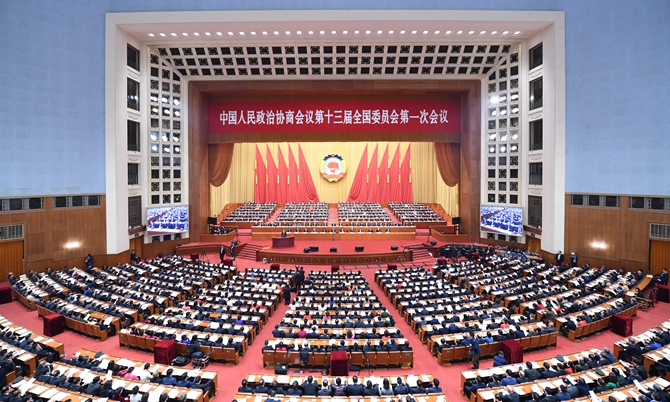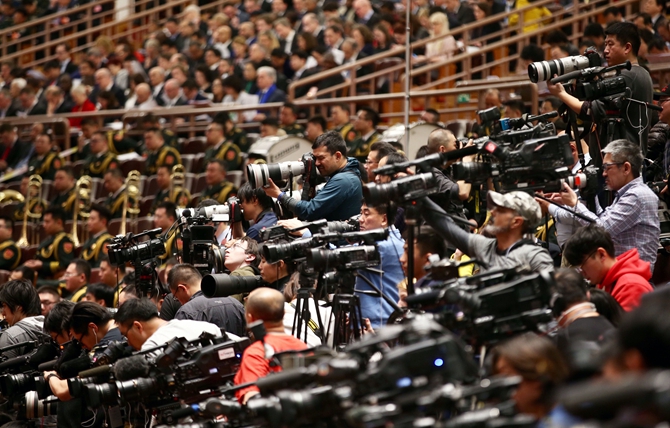China pledges vigorous poverty relief this year

China’s annual “Two Sessions” — CPPCC, NPC — opened on March 3 and 5 respectively in Beijing, attracting attentions from rest of the world. Today, as the world’s second largest economy, China’s global influence increases. Decisions made during the “Two Sessions” not only influence the country itself, but also have impact on the world. (Xinhua)
China pledged to pull another 10 million people out of dire poverty this year and promised to adopt targeted measures against corruption and misconduct in the poverty relief sector.
The 2018 goal of 10 million people includes 2.8 million who are to be relocated from inhospitable areas, Chinese Premier Li Keqiang said when delivering the Government Work Report at the annual legislative session on March 5.
Poverty alleviation efforts will be carried out by developing local industries, education and healthcare, the premier said.
In the most recent five-year period, China’s impoverished population — which stood at more than 98 million at the end of 2012 — was cut by two-thirds, the best performance in the country’s history of poverty reduction.
The country has set a goal to complete the building of a “moderately prosperous society” in all respects by 2020, which requires the eradication of extreme poverty.

The current poverty line in China is net annual income of 2,300 yuan ($362) in real terms in 2010.
Li said China will do more to support poor areas, and the national budget’s newly enlarged pool of poverty reduction funds and related investments will be weighted toward those areas.
China will tailor anti-poverty measures to individuals and households to ensure that those most vulnerable to poverty, including the elderly, people with disabilities and people with serious diseases, receive the assistance they need, he said.
Relief policies will remain unchanged for those already lifted out of dire circumstances.
Those who have fallen into poverty more recently, and those who slip back into poverty, will receive prompt support, the premier added.
Li also promised targeted measures against corruption and misconduct in poverty alleviation.
Lei Ming, director of the Institute on Poverty Research at Peking University, said the shift of the relief effort’s focus toward areas and people affected by extreme poverty shows that the campaign has entered the “the final sprint phase”.
“The task is getting increasingly arduous as it approaches the finishing line. Most of the remaining 30 million poor are either living in inhospitable areas or belong to the most vulnerable groups, including the old and the disabled, a situation that entails relocation or government covering their basic living costs,” Lei said.
Lei hailed the severe punishments aimed at corruption and praised a system design that stems misconduct in the sector, but he also noted that care should be used to avoid dampening poverty relief officials‘ enthusiasm.
“Corruption does exist in the sector, but most officials are hardworking and have self-discipline, otherwise the achievements wouldn’t have been made,” he said.
Editor: Wang Shixue